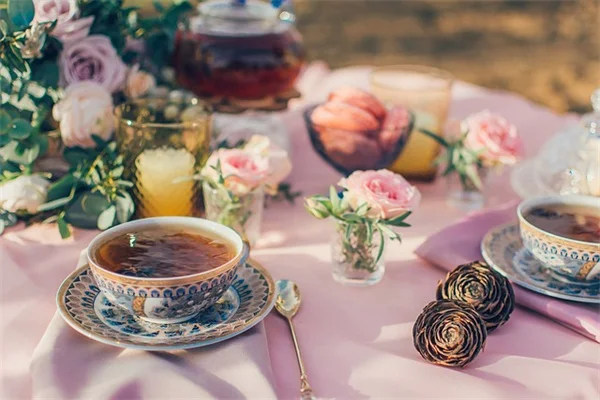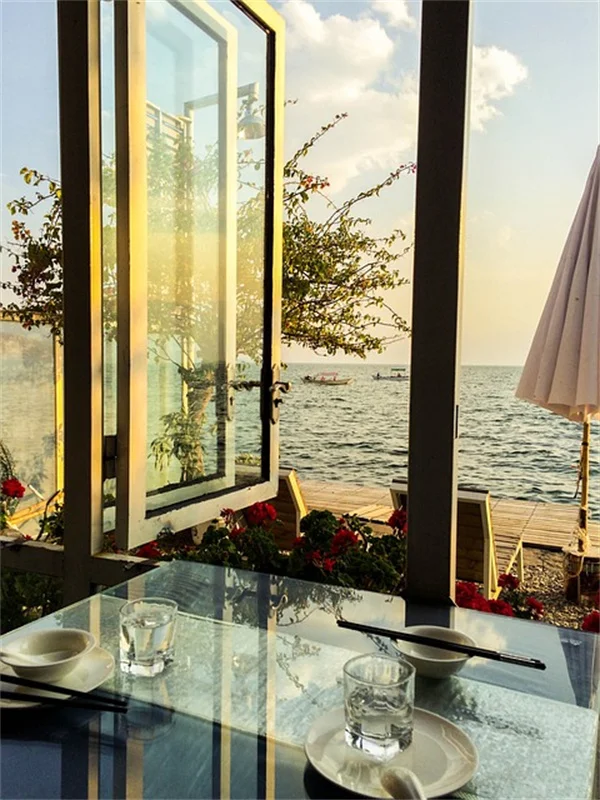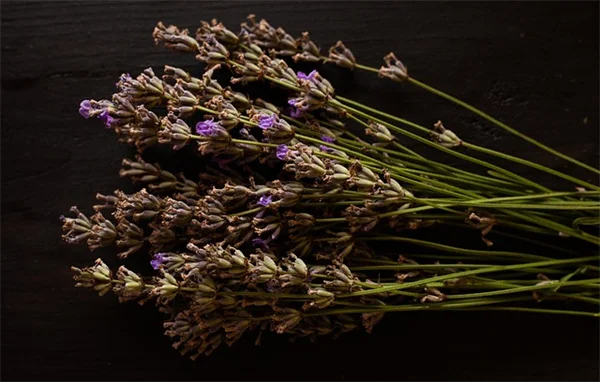How to Clean Kitchen Floors: 7 Expert Tips for Every Surface
Wondering how to clean kitchen floor effectively? The answer is simpler than you think! Keeping your kitchen floor spotless not only enhances the overall appearance of your home but also contributes to a healthier living environment. Whether you have tile, hardwood, vinyl, or linoleum, each type requires its own unique cleaning approach. I’ll walk you through the essentials, sharing tips and tricks to tackle even the toughest messes. So grab your cleaning supplies, and let’s dive into the best practices for maintaining a sparkling kitchen floor that you’ll be proud of! 🧽✨
E.g. :How to Clean Laminate Floors Without Leaving a Film: 7 Essential Tips for a Flawless Shine
- 1、Kitchen Floor Types: A Deep Dive into Cleaning & Maintenance 🧹
- 2、Cleaning Like a Pro: Step-by-Step Guides
- 3、DIY Cleaning Solutions: Kitchen Chemistry 101
- 4、Maintenance Tips: Keeping Floors Fabulous
- 5、Troubleshooting Common Floor Problems
- 6、FAQs
Kitchen Floor Types: A Deep Dive into Cleaning & Maintenance 🧹
Tile Floors: The Workhorse of Kitchens
Why we love them: Tile floors are like the superheroes of kitchen surfaces - they take spills, stains, and heavy foot traffic without breaking a sweat! Whether you've got ceramic, porcelain, or natural stone, each type has its own personality and cleaning needs.
Pro tip: For ceramic and porcelain tiles, mix 1/4 cup white vinegar with 1 gallon warm water - it cuts through grease like butter! But remember, never use vinegar on natural stone as it can etch the surface. Instead, use a pH-neutral stone cleaner.
Hardwood Floors: Beauty That Demands Attention
"Wait, wood in the kitchen?" you might ask. Absolutely! Modern sealed hardwood handles moisture better than you'd think. The secret? Gentle care and quick cleanups.
Here's what works best:
- Daily dry microfiber mop
- Weekly damp mop with hardwood-specific cleaner
- Immediate spill cleanup (no exceptions!)
Fun fact: Did you know walking on hardwood with high heels causes more damage than your dog's nails? 🐕 Time to rethink those kitchen fashion choices!
 Photos provided by pixabay
Photos provided by pixabay
Vinyl & Linoleum: Budget-Friendly Champions
These resilient floors are like the chameleons of kitchen surfaces - they can mimic pricier materials while being super easy to maintain. Check out this quick comparison:
| Feature | Vinyl | Linoleum |
|---|---|---|
| Water Resistance | Excellent | Good (needs sealing) |
| Cleaning Solution | Vinegar/water mix | pH-neutral cleaner |
| Scratch Resistance | Moderate | High |
Hot tip: For stubborn vinyl stains, try rubbing with a tennis ball! The rubber grips dirt without scratching. Who knew sports equipment belonged in your cleaning arsenal? 🎾
Cleaning Like a Pro: Step-by-Step Guides
Pre-Cleaning Prep: Setting Yourself Up for Success
Before you dive into cleaning, let's get organized! Here's what you'll need for most floor types:
Essential cleaning kit:
- Microfiber mop (the Swiss Army knife of cleaning tools)
- Soft-bristle broom
- Bucket with wringer
- pH-neutral cleaner
- Old toothbrush (for grout and corners)
Pro move: Create a cleaning caddy that stays under your sink. When spills happen (and they will!), you'll be ready to attack them like a ninja. 🥷
The Actual Cleaning Process: No Magic Required
"Why does my floor still look dirty after mopping?" Great question! The secret is in the technique, not just the cleaner.
Follow this foolproof method:
- Dry clean first (sweep/vacuum)
- Use two buckets - one for cleaning solution, one for rinse water
- Work in small sections (about 4x4 feet)
- Change water when it gets dirty (no cheating!)
Remember: Your mop should be damp, not dripping. Think of it like a good martini - just a suggestion of moisture! 🍸
DIY Cleaning Solutions: Kitchen Chemistry 101
 Photos provided by pixabay
Photos provided by pixabay
Vinyl & Linoleum: Budget-Friendly Champions
This pantry staple is a cleaning powerhouse! Here's my favorite all-purpose floor cleaner recipe:
Sparkle Sauce:
- 1/2 cup white vinegar
- 1 gallon warm water
- 1 teaspoon dish soap
- 10 drops essential oil (lemon or lavender work great)
Warning: Never use vinegar on:
- Natural stone
- Unsealed hardwood
- Waxed floors
Fun fact: The acid in vinegar is strong enough to dissolve mineral deposits but gentle enough for most sealed surfaces. Nature's perfect balance! 🌿
Baking Soda: The Quiet Hero
For tough grease spots or sticky messes, make a paste with baking soda and water. Let it sit for 5 minutes, then gently scrub with a soft brush. It's like giving your floor a mini facial! ✨
Bonus use: Sprinkle baking soda on smelly areas before vacuuming to neutralize odors. Your kitchen will smell fresher than a mountain meadow! 🌄
Maintenance Tips: Keeping Floors Fabulous
Daily Habits That Make a Difference
Little things add up to big results! Try these simple routines:
Morning: Quick sweep of high-traffic areas while coffee brews ☕
Evening: Wipe up spills immediately (no "I'll get it later" excuses!)
Weekly: Proper mopping session with your favorite cleaner
Remember: Your floor is like a good friend - treat it with consistent care, and it'll always look its best for you!
 Photos provided by pixabay
Photos provided by pixabay
Vinyl & Linoleum: Budget-Friendly Champions
Every 3-4 months, give your floors some extra TLC:
For tile: Scrub grout with a toothbrush and oxygen bleach
For hardwood: Apply refresher product to restore shine
For vinyl: Apply a thin coat of floor polish
Think of it as a spa day for your floors - they'll thank you with years of beautiful service! 💆♀️
Troubleshooting Common Floor Problems
Scratches & Scuffs: The Battle Plan
"Can I fix scratches without refinishing the whole floor?" Absolutely! Here's how:
For hardwood: Rub walnuts over minor scratches - the oils help disguise them! Who knew snack time could be repair time? 🌰
For vinyl: Use a heat gun (carefully!) to reactivate the surface layer
For tile: Apply matching nail polish to chips (seriously!)
Pro tip: Keep leftover tiles/flooring from installation - they're perfect for testing repair methods!
Stubborn Stains: When Regular Cleaning Isn't Enough
For those "oh no" moments, try these targeted solutions:
| Stain Type | Solution | Wait Time |
|---|---|---|
| Red wine | Hydrogen peroxide + dish soap | 10 minutes |
| Grease | Rubbing alcohol | 5 minutes |
| Water marks | Mayonnaise (yes, really!) | 1 hour |
Remember: Always test in an inconspicuous area first. Your floor isn't the place for surprise chemistry experiments! 🔬
Cleaning your kitchen floor doesn't have to be a daunting task. By following the right techniques, you can easily keep your floors looking fresh and inviting! From tile to hardwood and vinyl, each type has its own unique care requirements that, when understood, can make your life a lot simpler. Remember, it's all about the right products and methods! For instance, using a vinegar solution for ceramic tiles or a gentle hardwood cleaner can make a world of difference. So, whether you're dealing with stubborn stains or just daily messes, implementing these tips can transform your cleaning routine. I encourage you to grab that microfiber mop and get started—your kitchen will thank you! If you have any questions or want to share your own cleaning hacks, drop a comment below! Let's keep this conversation going and help each other out in our cleaning journeys! 🧼✨
Additionally, consider incorporating some seasonal deep cleaning rituals into your schedule. Just like we give ourselves a break with a spa day, our floors deserve that extra love too! You might want to explore different DIY cleaning solutions that can be both effective and eco-friendly, further enhancing your kitchen's cleanliness. Don't forget to engage with your community by sharing your experiences and learning from others. By doing so, we can collectively elevate our kitchen cleaning game. Let's make our kitchens shine together! 🌟👍
E.g. :How do you guys keep your kitchen floor clean? : r/CleaningTips
FAQs
What are the best cleaning methods for tile floors?
Tile floors are incredibly durable, but keeping them clean requires the right approach. I recommend mixing 1/4 cup of white vinegar with 1 gallon of warm water to tackle grease and grime effectively on ceramic and porcelain tiles. Just a heads up, though: avoid vinegar on natural stone as it can damage the surface. Instead, opt for a pH-neutral cleaner to maintain your stone tiles without any worries. Regular sweeping and mopping with the right solution will keep your tiles looking their best!
How should I care for hardwood floors in the kitchen?
Caring for hardwood floors in the kitchen might seem daunting, but it's manageable with a few simple steps. I suggest using a dry microfiber mop daily to pick up dirt and crumbs. For a deeper clean, a damp mop with a hardwood-specific cleaner once a week works wonders. Don't forget to clean up spills immediately! This quick action helps prevent water damage and keeps your floors looking gorgeous. Remember, gentle care is key to maintaining the beauty of your hardwood floors!
Are vinyl and linoleum floors easy to maintain?
Absolutely! Vinyl and linoleum floors are budget-friendly options that are surprisingly easy to maintain. I recommend using a vinegar and water mix for cleaning vinyl, while linoleum benefits from a pH-neutral cleaner. Both materials can handle spills well, but it's essential to wipe them up quickly to avoid any damage. For tougher stains on vinyl, try rubbing with a tennis ball. It’s a fun and effective way to keep your floors looking fresh without breaking the bank!
What should I include in my essential cleaning kit for kitchen floors?
Having the right tools can make all the difference when it comes to cleaning your kitchen floors. I suggest putting together an essential cleaning kit that includes a microfiber mop, a soft-bristle broom, a bucket with a wringer, a pH-neutral cleaner, and an old toothbrush for those hard-to-reach areas. Keep this kit under your sink for easy access whenever spills occur. With this arsenal at your disposal, you'll be ready to tackle any mess like a pro!
How can I fix scratches and stubborn stains on my kitchen floors?
If you encounter scratches on hardwood floors, rubbing walnuts over the area can help disguise them thanks to the natural oils. For vinyl, a heat gun can reactivate the surface layer, and for tile, applying matching nail polish can fix chips! For stubborn stains like red wine or grease, a mixture of hydrogen peroxide and dish soap or rubbing alcohol can work wonders. Always test any solution in an inconspicuous area first to avoid any surprises!


